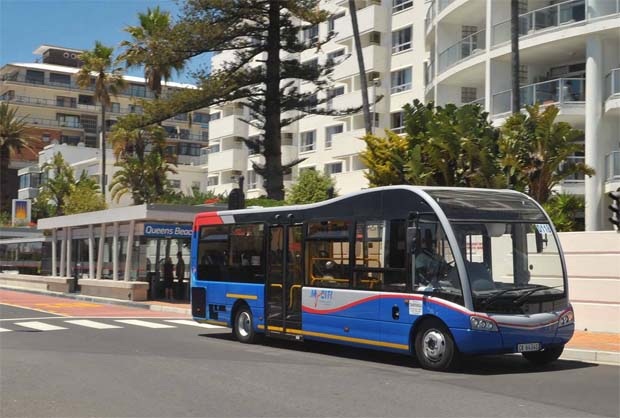From ride-sharing platforms to unique e-hailing services, the 2019 South African Transport Conference has revealed interesting ways South Africa will be investing in its transport system.
The minister of transport Fikile Mbalula addressed the Conference in Pretoria with a theme of "future of mobility" in SA.
Mbalula said that as South Africa, we are somewhere between "being pioneers in information technology-based mobility disruption and being later responders and adopters".Mbalula said: "However we need to recognize that technology is transforming the sector with speed and scale that are hard to comprehend.
"The transport systems of today and tomorrow will be connected, data-driven, shared, on-demand, electric, and highly automated. Ideas are moving swiftly from conception, research and design, tested to early adoption, and, finally, mass acceptance. According to the World Bank, the pace of innovation is only going to accelerate."
In public transport the application of these technologies forces public transport to become innovative and efficient, he said. This in turn has the potential to result in benefits such as an increase in public transport service quality, increasing user satisfaction, and as a consequence, increase in the Public Transport market share, reduction in congestion and negative environmental impacts and improving the quality of life.
Ride-sharing or e-hailing services that use online-enabled platforms offer the facility to order taxis often at a cheaper price than conventional taxis.
Areas of short to medium term potential that we are presented with include:
1 Promoting demand-based services like car-sharing, bike-sharing, ride-sharing schemes.
2 Promoting e-hailing initially and then shared vehicle schemes as alternatives to private car use with the related saving in especially parking space in urban areas,
3 Linking e-hailing schemes to assist in first/last mile solutions to access public transport networks in our cities which are not as dense as the global average,
4 Utilising the data warehouse capability developed by the South African National Roads Agency to provide a data platform for tracking public transport operations and contracts
5 Utilising SANRAL infrastructure and platforms for hosting a mobility account for all travellers which can then be utilised in public transport in addition to the current toll roads.
In the near future, the same account can also allow users to pay for all mobility services from parking, public transport to tolls using this account rather than having to pay separately to multiple municipal or private vendors. This data platform and transaction processing and account hosting infrastructure of national government can also serve to enable the implementation of Account Based Ticketing in public transport services for full fare integration across different operators and travel modes.
6 Cities working closely with minibus taxis to use information systems to manage operations better and to ultimately consolidate informal sector owners into medium sized operating companies.
7 Companies developing innovative apps to aggregate passengers and to offer shuttle type mobility solutions to large employers in lieu of them providing parking for employees.
Mbalula said: "The challenge going forward is how fast policy makers, regulators and users will adapt and keep up with the new changes and the excessive speed they are occurring. Another step forward is to start planning our cities and public transport systems with the upcoming changes in mind. As a country, we are still a long way off to transition from driver-operated to autonomous technology such as autonomous buses system."

Watch the full conference below:
Mbalula said: "Google maps can now incorporate live speed flows on the roads, so you can see where congestion is developing and what alternative routes are available to you. The benefits to this are also enabling governments to plan and construct new roads infrastructure based on good intelligence data.
"Whilst there are benefits and opportunities, the World Bank in 2018 acknowledged that “these disruptive technologies could also exacerbate existing transport and land use problems, and create new challenges.
"For example, from a public transport perspective, by removing some of the key constraints of commuting, these new transport solutions will lessen the appeal of building compact cities where people live close to jobs and services, instead paving the way for more and more urban sprawl, and governments in turn will need to build more intelligent transport infrastructure to respond to the new connectivity needs of its citizens.
"Like any other digitally-enabled technology, the threat of cyber attacks and privacy breaches to these smart and connected transport systems is real."
The Transport Department says it has had some experience of disparate Intelligent Transport Systems projects over the past 12 years or so, including:
• The publication of standards by government for interoperable smart card technology in public transport using the nationally integrated banking payment system. Related to this, government also pioneered the implementation of a pre-paid bank industry compatible smartcard for use in public transport by those without access to bank accounts.
• There are multiple start-up companies that are developing innovative approaches to mapping and tracking the tens of thousands of informal minibus taxis and their routes which form the bulk of public transport services in the country.
• e-hailing services like Uber and Taxify have begun to grow and challenge the limited coverage of the metered taxi industry in several cities, with disruptive competitive impact.
• Apps that are user-friendly mobile applications using real-time data so commuters can plan their journey in advance are available for use in some of the municipalities implementing integrated public transport networks.
Despite the various initiatives in new technologies, we need to acknowledge that the next wave of information technology innovation over the next 10 to 20 years has the potential to further transform access and mobility services and make them efficient and seamless. The next wave of shared and connected mobility solutions will impact the manner in which we provide integrated and seamless public transport services for our people.




 Publications
Publications
 Partners
Partners










